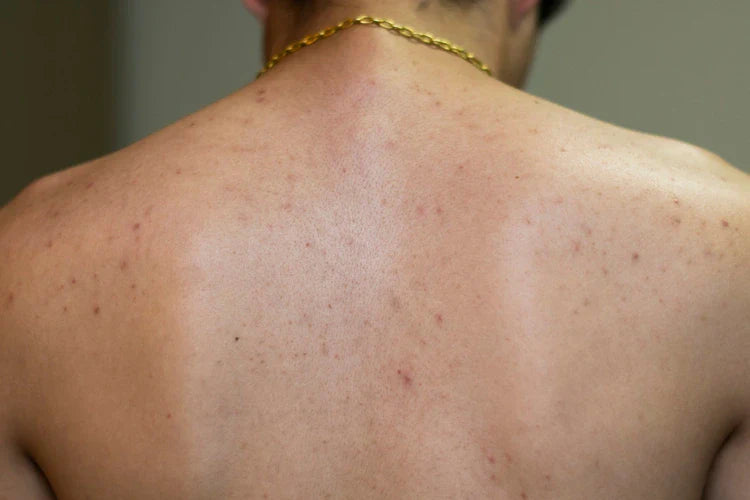Body Acne from Dirty Sheets: Surprising Factors Beauticians Should Know
For beauticians aiming to uncover the underlying causes of skin problems, it's essential to recognize one frequently overlooked factor: body acne from dirty sheets. This common issue is often neglected in skincare routines, yet it can be effectively addressed with a few strategic adjustments in both personal and client practices.
Let's delve into the unique connection between your bedding and body acne, and how beauticians can assist their clients in achieving clearer skin through straightforward yet impactful guidance.
:max_bytes(150000):strip_icc()/Health-GettyImages-1199366228-68076b11f747454fa13e21aa3f5920b6.jpg)
Why Dirty Sheets Can Cause Acne
Body acne, especially on the back and shoulders, can frequently be traced back to something as ordinary as unwashed bed linens. Over time, sheets gather sweat, dirt, oils, and bacteria. When these linens touch the skin night after night, they create a perfect breeding ground for acne breakouts. For beauticians, grasping this aspect is vital for providing holistic skincare advice.
Beauticians should prioritize educating their clients on the significance of regularly changing and washing their sheets. This simple recommendation can lead to significant improvements in acne prevention and management. Furthermore, advising clients to wash their sheets in hot water weekly can aid in eliminating bacteria and removing stubborn oils and grime.
Recognizing the Signs: Acne Development Due to Linens
As a beautician, being able to identify the signs of acne linked to dirty sheets can greatly enhance your consultations with clients. Pay attention to persistent breakouts in areas like the back, shoulders, and arms, even if the client's overall skincare regimen seems well-structured.
By addressing these concerns and posing specific questions about their sheet and sleep hygiene, you can provide practical solutions that seamlessly integrate into their lives.
Suggested Solutions for Beauticians
Regular Sheet Changes
Encourage clients to establish the habit of changing their bed linens at least once every week. Suggest using breathable materials like cotton for pillowcases and sheets, as these are less likely to trap oils and trigger breakouts.
Skin-Friendly Laundry Practices
Advise clients to utilize gentle, fragrance-free detergents for washing their sheets to avoid skin irritation. Incorporating a cup of white vinegar in the wash cycle can enhance this practice by breaking down oils and softening the fabrics.
Complementary Skincare Tips
For clients currently battling body acne, introducing an appropriate body wash can make all the difference. Many resources detail effective washes; for example, consider suggesting options from the curated list of best body washes.
Moreover, emphasize the importance of a consistent cleansing routine post-exercise, as sweat can promote bacterial growth, leading to an escalation in acne.
Empathy and Client Trust
Achieving better skin health extends beyond adhering to strict protocols; it involves compassionate care. As a beautician, fostering trust with clients by understanding their daily challenges can differentiate you from others.
Expand your knowledge on acne management through comprehensive resources like those shared on showering wisdom, and relay this knowledge to your clients.
Relevant Links for Further Reading
:max_bytes(150000):strip_icc()/back-view-of-senior-woman-applying-cream-on-neck-1125579154-af53c8f013b749e79e49eea54ac27e07.jpg)
FAQ
How often should sheets be changed to prevent body acne?
It is recommended to change sheets at least once a week. Using hot water for washing can help eliminate bacteria and prevent breakouts.
Can dirty pillowcases affect facial acne as well?
Yes, pillowcases can harbor oils and bacteria that may aggravate facial acne. Regular washing is equally important for preventing face-related acne issues.
What materials are best for sheets to reduce acne irritations?
Choose breathable materials like cotton or bamboo that minimize moisture trapping and are less abrasive on the skin. These materials help reduce irritation and potential acne formation.
This article contains affiliate links. We may earn a commission at no extra cost to you.

